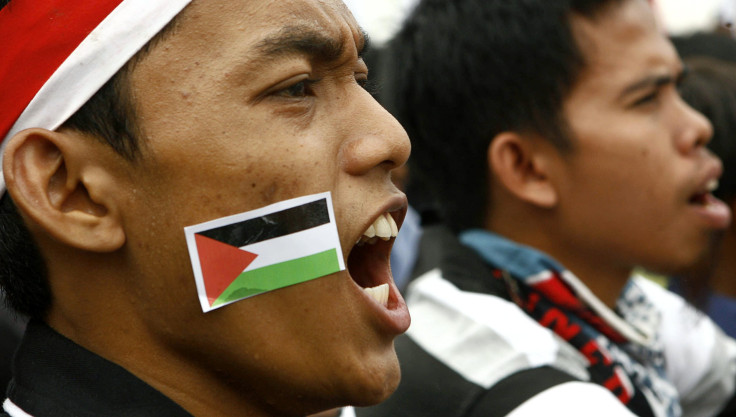Islamic State In Indonesia? Four Turkish Nationals, Suspected IS Members, In Custody

Four Turkish citizens suspected of being linked to the Islamic State jihadist group are in Indonesian custody, officials in Jakarta said Sunday. Until now, the Indonesian government has been primarily concerned about its own citizens going to fight for the militant group formerly known as ISIS and then returning with combat experience to wreak havoc at home.
If the allegations made by the government are true, then it would indicate foreigners affiliated with the Islamic State are forming allegiances with Indonesian extremists. Three Indonesians were also arrested Saturday after two of them picked up the Turkish men at the Makassar airport in South Sulawesi province, which has suffered Muslim-Christian violence in recent years.
“The four foreigners managed to flee to the mountains” before their capture, Boy Rafli Amar, a representative of the anti-terrorism police squad Detachment 88, told Agence France-Presse.
#Endonezya, İŞİD baglantisi oldugu belirtti 4 Turk'u Jakarta'da tutukladigini belirtti. http://t.co/GMLkW1L6MR pic.twitter.com/sq42zPs1Tn
— O.Nuri KULAHCIOGLU (@SiniZeR) September 14, 2014Indonesia has struggled against home-grown extremists for years. In 2002, Jemaah Islamiah militants detonated bombs near nightclubs in the tourist center of Kuta, Bali, killing 202 people from five countries. A similar attack took place three years later in Kuta. Bali is home to many in Indonesia’s Hindu minority, and it frequently sees a large influx of international travelers as one of the country’s most important centers of tourism.
Three Christian girls were beheaded in South Sulawesi by Muslim militants in 2005, as noted by the Guardian. Between 1998 and 2000, Muslim-Christian violence in the province killed about 1,000 people and displaced 60,000 families from their homes, as pointed out by BBC News.
Indonesia is home to the world’s largest Muslim population. The country completed its first democratic transition of power July 9 when the electorate picked Joko Widodo to replace Susilo Bambang Yudhoyono’s hand-picked successor Prabowo Subianto.
Yudhoyono, who steps down Oct. 20 in the country’s historic transition of power, said last month that the Islamic State is “embarrassing” and “humiliating” Muslims by using the religion to justify its actions. “This is a new wake-up call to international leaders all over the world, including Islamic leaders,” he said.
© Copyright IBTimes 2025. All rights reserved.





















